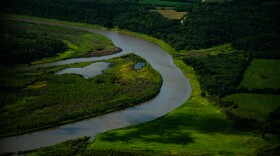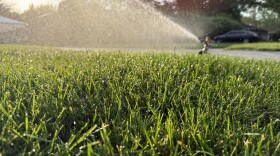-
Former University of Iowa professor and Democrat Chris Jones announced he's running for Iowa secretary of agriculture. He will face a June primary against Marshalltown-area farmer, Wade Dooley.
-
Iowa cities are receiving significant settlements from chemical companies to address "forever chemical" contamination in drinking water. But officials caution that the funds may not cover all associated costs, as long-term solutions remain uncertain.
-
Water restrictions for nearly a fifth of the Iowa’s population brought the state’s nitrate challenges to the forefront. Water quality experts say certain practices higher up in the watershed could make a difference if they are scaled up.
-
After Des Moines Oktoberfest event organizers moved the event from its Water Works Park location to Ankeny for the foreseeable future, the Des Moines Biergarten announced its own celebration.
-
A conversation with Ted Corrigan, the soon-to-retire CEO of Des Moines Water Works.
-
Nitrate levels remain elevated in the Des Moines and Raccoon rivers, two of the drinking water sources for Central Iowa Water Works' 600,000 customers. The regional utility recently shared how it tests water and removes nitrates at one of its plants to meet federal drinking water standards.
-
Nitrate levels are still at dangerous levels in Des Moines’ rivers. To keep the area’s sources for drinking water from exceeding EPA standards, Central Iowa Water Works is continuing its ban on lawn watering, possibly for weeks.
-
There is not a shortage from water sources in the area, but treatment facilities are struggling to keep up with high levels of nitrate in the rivers that supply the system.
-
The 80/35 music festival, held for years in downtown Des Moines, had a new location and different feel in 2024, but still had plenty to offer. And the music — and the people — were (still) amazing.
-
In Des Moines, some queer Iowans are seeking alternatives to major, corporate-sponsored Pride eventsDes Moines’ People’s Pride put on its second-ever event at Water Works Park on June 15.
Play Live Radio
Next Up:
0:00
0:00
Available On Air Stations










